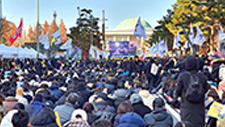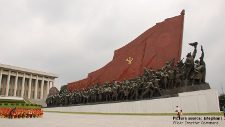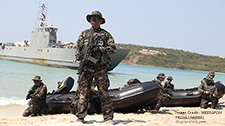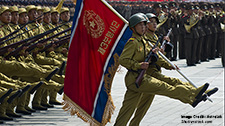From Europe, Yoon Suk Yeol Calls for International Cooperation on North Korea’s Nuclear and Missile Threats
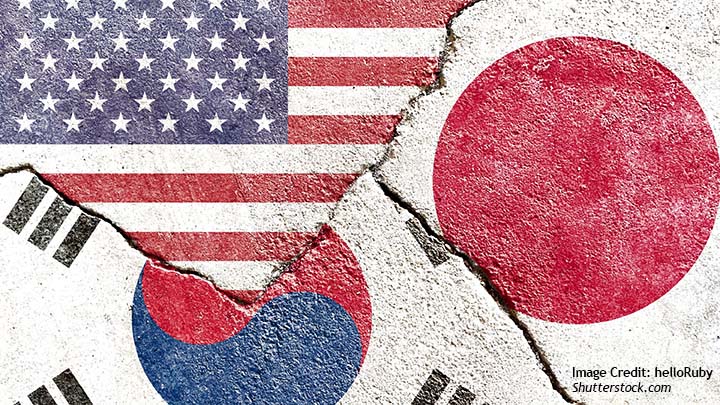
Mitch Shin
Introduction:
The leaders of the United States, South Korea, and Japan met in Madrid on Wednesday. Held on the sidelines of the North Atlantic Treaty Organization (NATO) meetings this week, the trilateral summit meeting was the first of its kind since September 2017.
As Pyongyang prepares to conduct its seventh nuclear test, the three leaders agreed to respond to North Korea’s nuclear and missile threats through trilateral cooperation.
“Our trilateral cooperation, in my view, is essential to achieving our shared objective, including a complete denuclearization of the Korean Peninsula and a free and open Indo-Pacific,” U.S. President Joe Biden, who hosted the meeting, said in his opening remarks.
Since Biden took office, Washington has consistently made clear that it has “no hostile intent” toward North Korea in a bid to overcome the so-called “hostile policy” framing initiated by Pyongyang. In order to restore the deadlocked dialogue, Washington has expressed willingness to sit down with Pyongyang “anytime, anywhere, with no preconditions.” Pyongyang has not responded to its messages but instead demanded that Washington make concessions. In North Korea’s view, the United States – and specifically then-U.S. President Donald Trump – bears responsibility for the failure of the 2019 Hanoi summit, so Washington must make the first move to restart dialogue again.
Related Publications
-
Martial Law and Political Polarization: What’s in Store for South Korea?
Abstract On December 3, South Korean President Yoon Suk-yeol declared emergency martial law, shocking both the country and the rest of the world. However, the martial law was only in […]
-
Kamala Harris on North Korea: Change or Continuation?
Despite many efforts and different strategies, both previous and current U.S. administrations have been unsuccessful in preventing the Democratic People’s Republic of Korea (DPRK) from developing its nuclear and missile […]
-
‘Strategic Talks’ – A Report by Stockholm Korea Center
In June, the ISDP Korea Center launched “Strategic Talks,” an online series focusing on developments on the Korean Peninsula and regional and international security. The inaugural session on June 4, […]
-
Russia-DPRK Partnership: Implications for the West
This issue brief examines the evolving relationship between the DPRK and Russia, particularly since Russia’s invasion of Ukraine in 2022. The partnership has deepened, with North Korea supporting Russia diplomatically […]
-
Deciphering North Korea’s Military Activities
In 2024, the growing tensions on the Korean Peninsula have highlighted the unpredictability of North Korea’s military intentions. This issue brief evaluates the strategic behaviors of North Korea, particularly under […]
